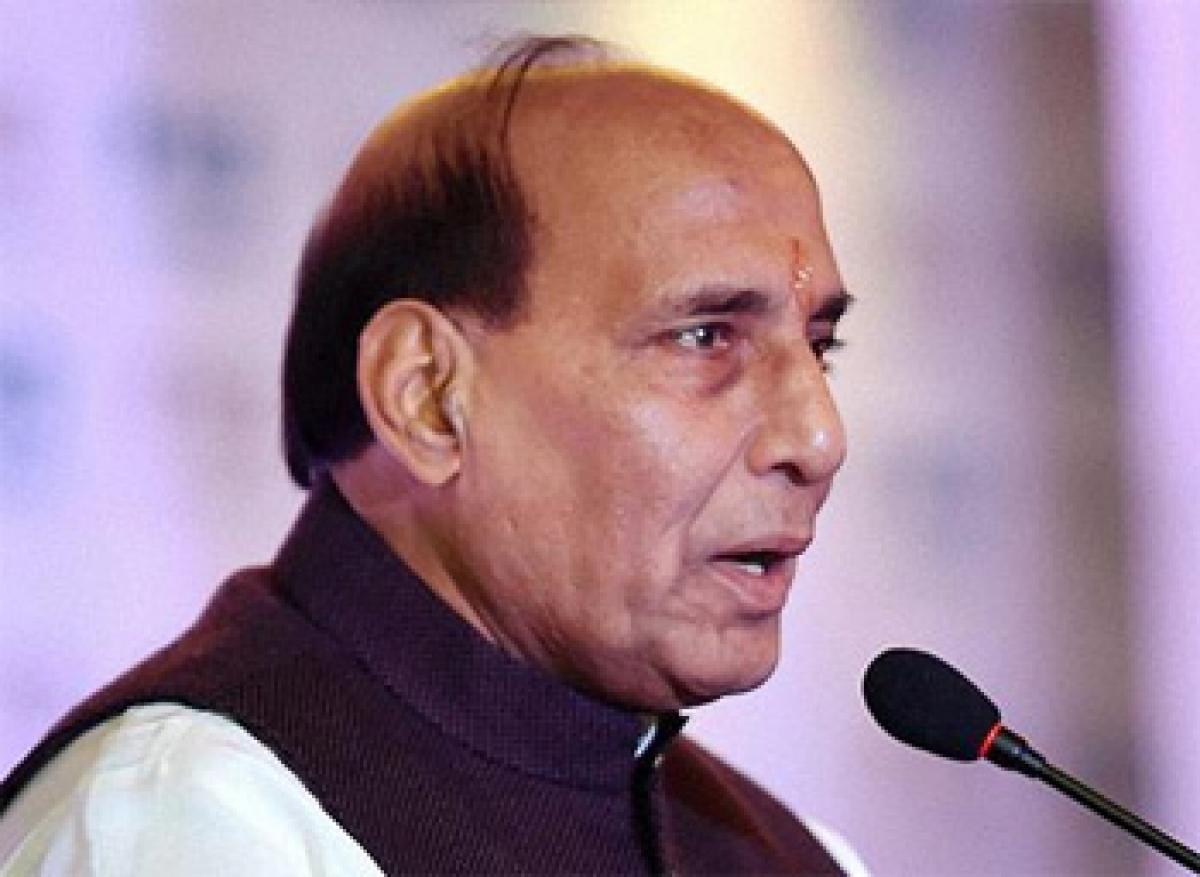Live
- The critical need for special education in preschools
- Loneliness is a reason for your late-night chocolate cravings says study
- Championing creativity: Celebrating literature & diversity
- Aishwarya Rajesh makes her Sandalwood debut opposite Dhananjaya in 'Uttarakaanda'
- BRS writ in HC directing EC to act against Konda Surekha for code violation
- This WhatsApp feature will let you respond quickly to status updates
- YS Jagan assures of support for revival of Visakha steel plant, says strived to stop privatisation
- Unlocking Wellness
- KCR bid to topple govt is Revanth’s lie
- Xiaomi Unveils Redmi Pad SE, Buds 5A, and More: Prices and Features
Just In

Union Minister for Home Rajnath Singh says the government is ready for talks with Maoists, but with a caveat. The precondition is that Maoists should shun violence and embrace the democratic path. This may sound convincing for those who do not understand the complexities of the issue.
Union Minister for Home Rajnath Singh says the government is ready for talks with Maoists, but with a caveat. The precondition is that Maoists should shun violence and embrace the democratic path. This may sound convincing for those who do not understand the complexities of the issue.
If Maoists give up armed struggle and enter the Indian democratic mainstream, they are no longer Maoists and there is no need for talks. Therefore, putting a precondition to shun the armed path actually is tantamount to closing the possibility for any kind of negotiations with Left extremists.
Prime Minister Narendra Modi visited Pakistan and held talks with Nawaz Sharif even when Islamabad has not given up exporting terror to India. The goodwill mission to the hostile land was taken up despite Pakistan not giving up even a bit of its anti-India stand on Kashmir. When the government can show such pragmatism towards a belligerent neighbour, why has it put forth conditions for talks with erring Indians?
Maoists refuse to even recognise the constitutional democracy in India and call the Indian State comprador. Refusing to learn from the experiences of their Nepali comrades, Indian Maoists still adhere to the path of individual annihilation and swear to overthrow the Indian State through armed struggle.
Such an ideological position is an anathema to democracy. But, talks with Maoists need not be viewed as a concession to them. But it is an attempt to bring peace and tranquility in the regions long affected by police–Maoist crossfire. But, earlier experience with such a process in united Andhra Pradesh makes one skeptical. To avoid a repetition of the same spectacle, both sides should demonstrate political maturity.
The Maoists should not perceive the opportunity thrown up by talks to amass weapons or increase cadre recruitment. Similarly, government should not use it as a strategic move to sneak into their hideouts to finish them later. Any such strategy would derail the peace process.
Both the parties can hold meaningful negotiations if the demands put forth by Maoists are implementable within the constitutional scheme of things. To begin with, Maoists can advance demands like proper implementation of Land Acquisition Act, providing tribals an unhindered access to Jal, Jangal, Jameen (water, forest and land), ensuring tribals a rightful share in the precious mineral wealth, social safety measures for the displaced , effective implementation of forest rights act etc.
The controversy over the status of weapons carried by Maoist can also be resolved through a sagacious approach. The government should not insist that Maoists give up arms. This is obviously unacceptable to Maoists and renders the entire effort fruitless. At the same time, Maoists should not insist that they be allowed to carry and display weapons. Such a concession would deprive the civil society and even the government of a level-playing field during talks.
Despite a decade-long armed insurgency, Maoists in Nepal ultimately joined the democratic mainstream and even held power. The Sri Lankan extremists were decimated as they refused to give up the path of violence. These two illustrations from the Indian subcontinent itself should serve as a lesson for the Indian Maoists.

© 2024 Hyderabad Media House Limited/The Hans India. All rights reserved. Powered by hocalwire.com







